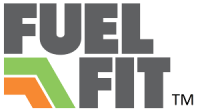So you’ve been wanting to do something about your health. You know that you should get more active and clean up your eating habits, but where do you start? One of the latest options that has been gaining popularity is online fitness coaching. In this post, we give an outline on what online fitness coaching entails, its pros and cons, and who would benefit most from it.
What Should You Expect From Online Fitness Coaching?
There are various formats of online fitness coaching programs. Some may be 1-to-1 online personal training programs, while others may be an online fitness program with a virtual community. Either way, your fitness program will be delivered digitally. Instead of meeting a trainer at the gym or group exercise sessions, you will be interacting virtually with a coach.
Before the start of the online program, your coach will have an initial consultation conducted over the phone or Skype to discuss your goals and go through some basic movements with you.
The lessons, training sessions and communication during the fitness program is usually delivered via email or an online platform. When you complete your assigned task, you will be expected to update on your progress.
What Are The Pros of Online Fitness Coaching?
- It allows for some flexibility within a structure of the program.
Although you are given a plan and a frame of time to complete your workouts and tasks, you are not constrained by having to be at a specific place, at a specific time. This means that if you have a busy or erratic schedule, you have the flexibility to choose a time that works for you. You can still follow the program even if you are travelling for work or leisure, or based overseas.
- It is easier on the wallet than engaging an in-person 1-to-1 personal trainer.
In-person 1-to-1 personal training gives you the benefit of undivided, real-time attention and feedback from your personal trainer. However, it is a luxury that not many can afford to have 2 or more times a week. A 1-hour session with a personal trainer can cost $100 or more. Assuming you train 2 times a week with a personal trainer, you can expect to be investing $800 or more per month. With online fitness coaching, you can stretch your investment and benefit from a longer program with more sessions.
- There is a system in place to help you keep track of your progress.
There are usually different forms of accountability checks that have been worked into the program. Your coach may have established a method and schedule for you to indicate when you have completed a assigned workout, update your progress, and connect for dedicated individual coaching consultations.
What Are The Cons of Online Fitness Coaching?
- Online fitness coaching requires you to be fairly independent and self-motivated.
Without an in-person session to attend, you need the discipline and self-motivation to ensure that you complete the workouts planned out for you. You need to know when to push yourself and when to reduce the intensity.
- You will not get immediate or “real-time” feedback and coaching.
Adding on to the earlier point, since your coach is not physically next to you during your workouts, you will not get immediate or “real-time” feedback on your form or technique. There won’t be that timely “You got this!” when you need an extra boost to help you through the last few minutes of your training.
- You require a decent level of IT savvy-ness.
Since your fitness program and coaching will be delivered online, you will be required to use one of more digital tools and platforms. Some online coaching programs may be conducted fully over email. However, others may require the use video conferencing and other more complex online platforms.
Who Will Benefit Most From Online Fitness Coaching?
Online fitness coaching is not for everyone. However, if most or all the following describe you, we think that online fitness coaching may be just what you are looking for!
- Independent, disciplined, self-motivated
- Appreciate structure, but with some flexibility
- Not completely new to fitness
- Comfortable using digital platforms
- Have busy or erratic schedules

